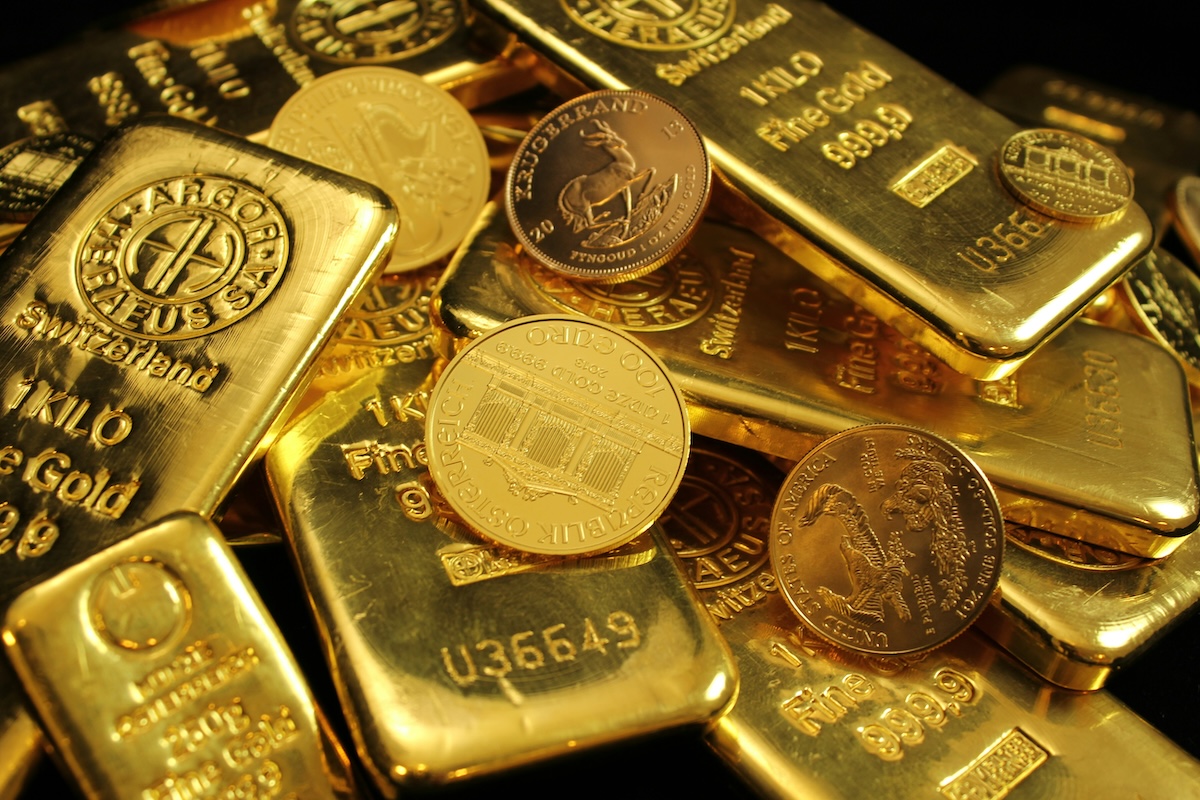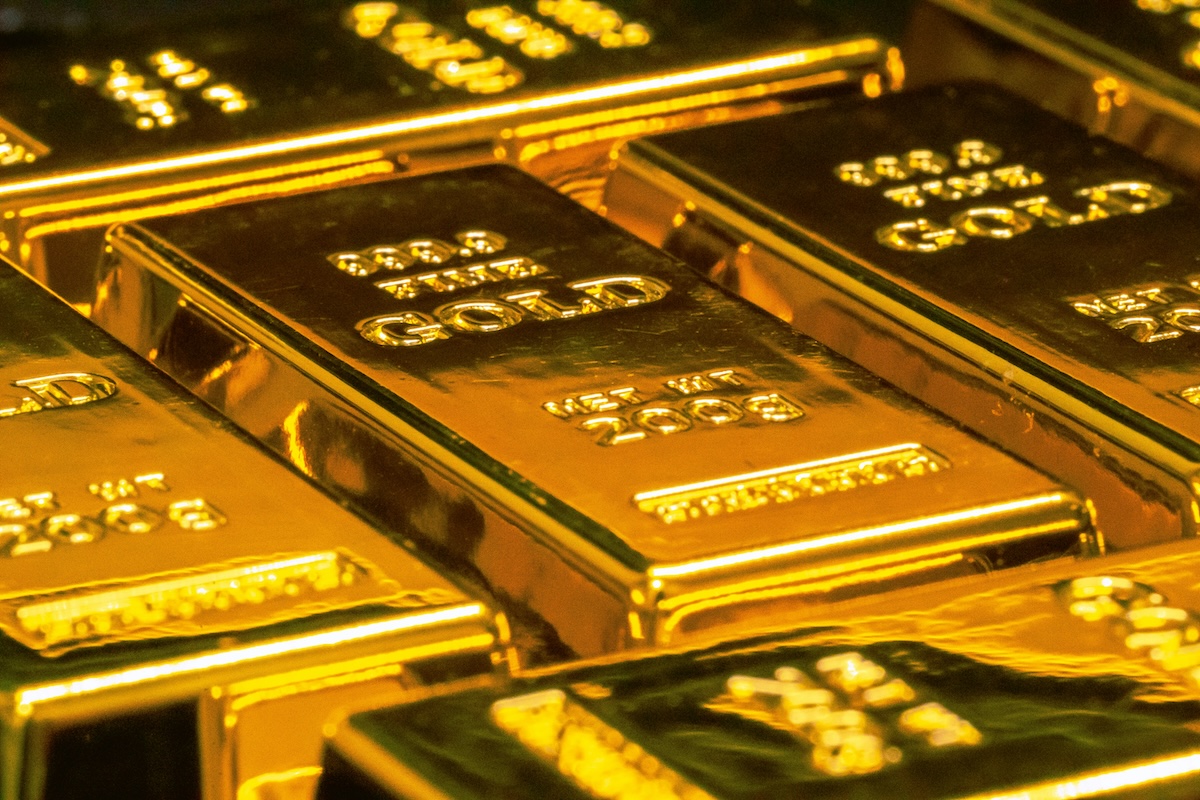
Which Countries Have the Largest Gold Reserves in the World?
By: Charlie Moore
Skip to Section
In an age where stock markets pivot at the publishing of a tweet, and cryptocurrencies capture headlines, there’s one symbol of stability that nations cling to firmly: gold. This precious metal has been a measure of wealth throughout human history, and its lure remains untarnished despite the unpredictability of global economies.
But which countries command the lion’s share of this valued treasure?
Let’s dig into the glittering world of gold reserves and uncover the nations that have amassed the largest hoards of this long-revered commodity.
USA
America boasts the largest gold reserves in the world—a gilded badge of economic fortitude and a historical legacy. Holding a dominant position in international finance, the American gold reserves are a testament to the country’s enduring fiscal prowess. The Federal Reserve owns more than 8,000 tonnes of gold—this is almost as much as the combined amounts of the next three richest countries on this list.
Around half of the country’s reserves are stored in the famously secure vaults at Fort Knox in Kentucky, with other significant holdings found in the Federal Reserve Bank of New York. Recent statistics suggest that America’s gold deposits are worth just shy of $500 billion. On top of its vast reserves, the USA is also a global leader in producing new gold—172 tonnes were mined across the country in 2022 alone.
Germany
Gold has been important to Germany throughout its history. During the World Wars, it was seen as a status symbol, and the Nazi regime stole vast amounts of gold from its European neighbours. Post-war hyperinflation in the Weimar Republic saw gold enter the public consciousness as a viable investment option to safeguard financial stability in these most unstable of times.
More than a hundred years later, Germany still holds an important cultural relationship with the precious metal. Naturally, this close connection is predominantly upheld within the walls of its national reserves, which are found in the Deutsche Bundesbank in Frankfurt. However, German citizens are also keen to play their part in maintaining the country’s association with gold that we’ve seen develop over the past century. In fact, in the decade leading up to 2023, one in every eight ounces of global gold coin and bullion bar investments were made in Germany.
Italy

Photo by Jingming Pan on Unsplash
Italy has faced its fair share of economic uncertainty in the 21st century. However, one factor that’s been something of a constant throughout history is the value of its gold reserves. The majority of these reserves are in the form of gold bars, predominantly stored in the Bank of Italy in Rome, with the rest made up of gold coins. As a method of diversification and risk mitigation, Italy has gold deposits in banks across the world, including in Switzerland and America. In total, Italy possesses 2,452 tonnes of gold—the weight of the country’s reserves has remained unchanged since 1999, after decades of steadily increasing.
France
With 2,437 tonnes of gold deposits, France boasts the fourth-largest reserves in the world, falling just behind their European neighbours. The country’s gold reserves are all stored in an underground vault known as the Souterraine, 27 metres beneath the surface of the French capital. Currently valued at over €125 billion, the country’s gold stores equate to 5% of its Gross Domestic Product. Each month, Banque de France publishes the official weight of the reserves on its website but, having last sold some of its gold in 2009, France’s stores have stayed the same for 15 years.
Going for Gold
While it’s by no means the only determining factor, the size of a country’s gold reserves remains a clear indicator of financial strength on the global economic stage. As demand continues to grow around the world for this precious metal, the economic positioning of these four countries is only likely to strengthen. Of course, it’s worth noting that other countries not on this list—such as Australia and South Africa—are home to incredibly vast reserves of unmined gold that are waiting to be tapped into. This leaves those nations in a similarly powerful position, with the global clamour for this valuable commodity showing no signs of slowing.
About the Author
Since graduating from a leading London university with a first-class honours degree in Economics, Charlie Moore has gone on to forge a career in teaching, specialising in macroeconomics.
Featured image by Zlaťáky.cz on Unsplash
Information published on this website and across our networks can change over time. Stories and recommendations reflect the subjective opinions of our writers. You should consult multiple sources to ensure you have the most current, safe, and correct details for your own research and plans.
Frayed Passport is a participant in the Amazon Associates Program, an affiliate advertising program designed to provide a means for sites to earn advertising fees by advertising and linking to Amazon.com. We also may share links to other affiliates and sponsors in articles across our website.




